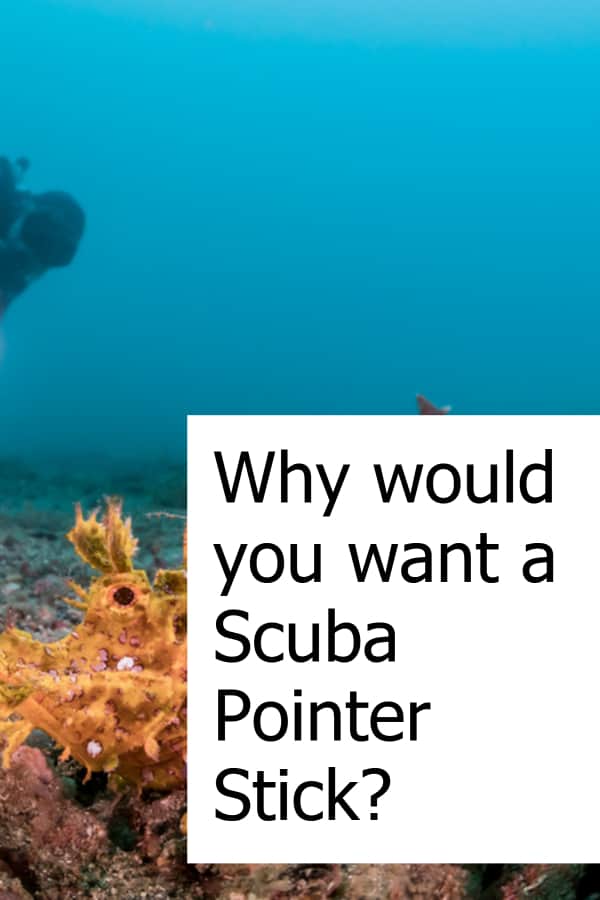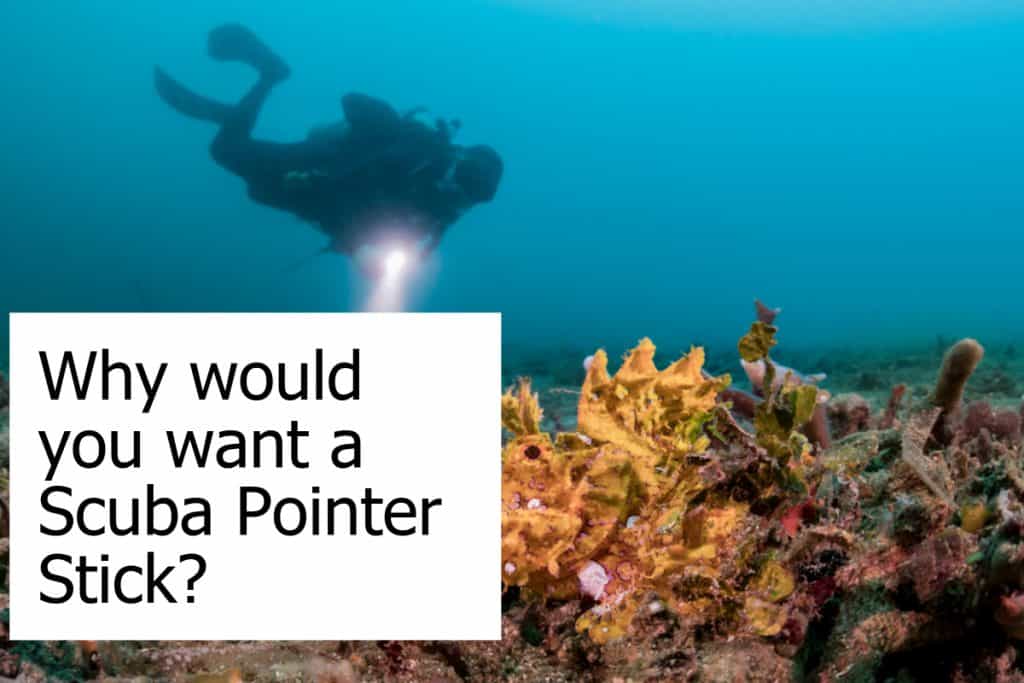Why would you want a Scuba Pointer Stick?
All scuba divers know the pointer stick by different names. Whether its shark or reef stick, muck, or lobster tickle stick, they all refer to the same accessory.
The pointer stick is one of the most versatile tools you have at your disposal while scuba diving. It’s a short stick that usually is made from non-rusting, sturdy metal or fiberglass. Some models have a noisemaker like a rattle on one end to be able to produce some noise. The other end usually has a hole that allows attaching a lanyard to it to prevent any chance of loss.
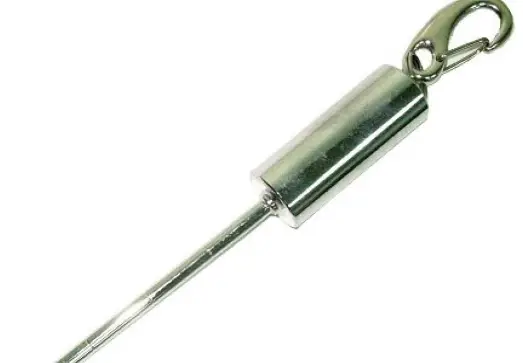
There are a variety of uses for a muck stick while stick diving. We listed them below for your reference:
Pointer
The use as a pointer is pretty obvious as the name already includes the word ‘pointer’ in it. It is the primary purpose of the pointer for a scuba diver.
If diving in a group or with a buddy you can point out interesting things like coral or sea life without having to get close or scaring the animal.
In many cases, you might want to keep your distance to not disturb or risk your fingers when pointing sights out to others. Just think of how a moray might enjoy nibbling on your fingers. Pointing a metal stick is definitely a better idea…
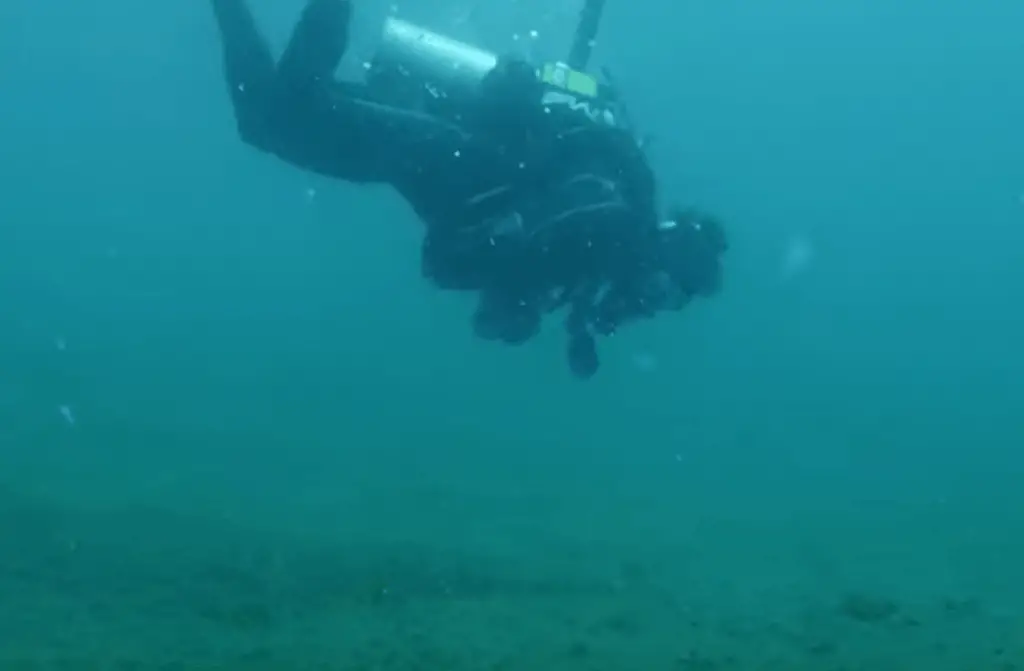
Photo Making Support
If you’re making a lot of pictures underwater then you soon will appreciate the use of the shark stick as a monopod. It can help with keeping yourself stable as well as supporting a heavier camera while you make a shot during your underwater photography diving.
Touch Prevention
We all learn to avoid touching anything while diving. At times that’s easier said than done. Diving in caves or wrecks, it’s often impossible to avoid touching anything surrounding you.
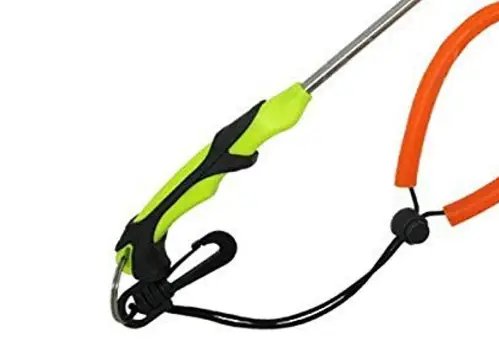
A pointer stick can help you stay away from all surfaces so you can reduce your need to touch anything to the bare minimum. It also helps a lot to keep your distance to some nasty ‘friends’ like urchins and the likes.
If you need to touch any surface then a pointer stick usually allows minimizing the area you disturb. This is especially important if you dive in sensitive environments like corals and reefs.
Tank Banger
Using a metal stick to bang against your metal tank is a sure way to get some attention from your buddies. Unfortunately, it also scares the fish away but in case of an emergency is the perfect way to get anyone’s attention.
Alternatively, you can get a pointer stick with a rattle. It’ll allow you to get the attention of your dive group without making too much noise. You still can bang the stick against your tank if the rattle doesn’t do the job.
Muck Stick
One of the most annoying things happening during a dive is if you have perfect sight and then you or one of your dive buddies ends up disturbing the silt or sand on the bottom. All visibility is gone within a short period and the clear water surrounding you turns into foggy soup.
Using a pointer stick allows to disturb less area and cause less or no silt and sand to rise. It allows you to stay off the surface if you end up having trouble to stay buoyant. The best is to master buoyancy so you won’t run the risk of ending up on the surface in the first place. However, on those rare occasions where you suddenly get pulled down, the stick can help you tremendously to stay off the surface.
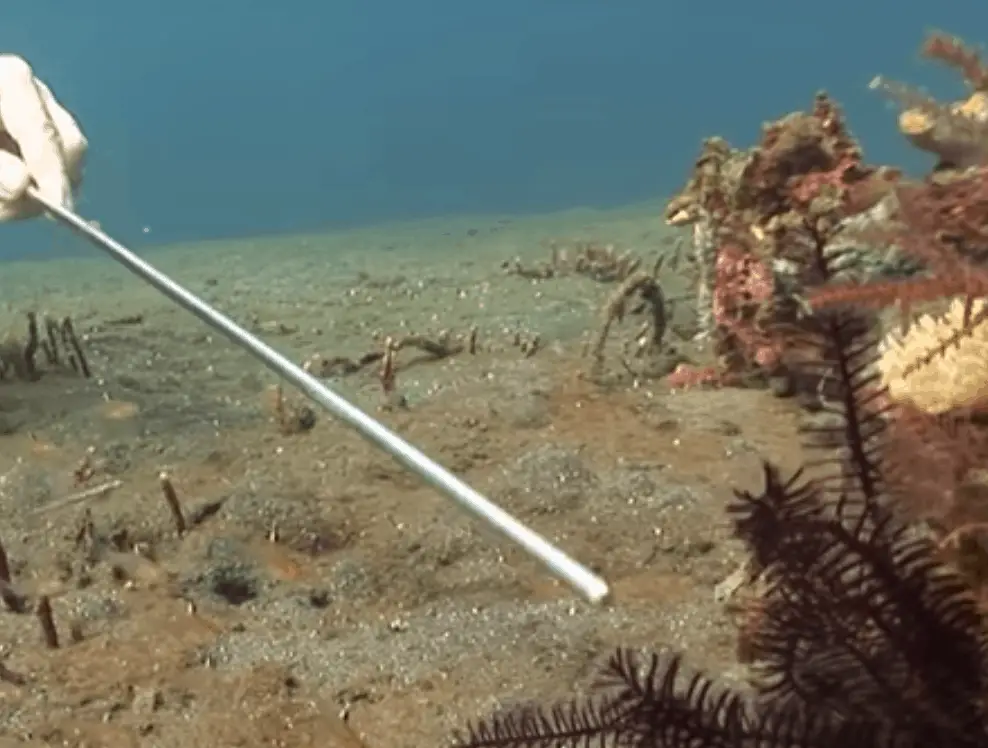
Scuba Gloves – Do you need diving gloves for cold water only?
Anchor
In strong currents, a dive stick can be super helpful to allow you to anchor yourself into the seabed. You won’t have to work as hard to stay in place and reduce your air consumption this way.
Be aware though that you need a sturdier model of a scuba pointer to be able to use it as an anchor. A thin pointer might bend or break and be of no use in those circumstances.
Protect Yourself
Last but not least, a shark stick can be helpful to defend yourself against underwater creatures. This is not the primary purpose but in the case of a curious shark or an aggressive fish, it’s always better to have a metal stick to keep between you and the animal than trying to use your hands or diving fins.
A few quick jabs with the stick to the gills either scare the animal off or at least buys you enough time to get some distance. It certainly won’t stop an attack of a large underwater predator but it will help keep you safe against nearly all curious or territorial fish you might encounter.
Yet, the underwater creature you’re up against does not have to be as dangerous as a shark. Even a lobster is better evaluated when you tickle it with a lobster tickle stick.
Conclusion
The scuba pointer stick is, without doubt, the Swiss army knife of divers. It is useful for many situations and should be your trusted accessory for any dive.
